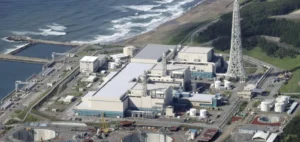The IAEA has completed its review mission of the Oskarshamn nuclear power plant in Sweden. During a ten-day mission, the experts examined the preparation, organization and programs of the plant. The management of the plant expresses its determination to implement the recommendations of the report.
IAEA conducts long-term review mission in Sweden
The mission, conducted by a team of nine experts, was carried out at the request of the plant operator, OKG Aktiebolag. The latter is preparing to extend the life of Unit 3 of the plant to 60 years. The IAEA therefore conducted a long-term operation (LTO) mission for the unit concerned.
Located about 300 kilometers south of Stockholm, Unit 3 went into commercial operation in 1985. It has a boiling water reactor and a net electrical power of 1,400 MW(e).
These missions, called SALTO (Safety Aspects of Long Term Operation), allow a complete review of the safety of nuclear power plants. This support is appreciated by Johan Lundberg, OKG’s managing director:
“We appreciate IAEA’s support of our plant in aging management and preparing for a safe LTO.”
Good performance in nuclear safety
For the IAEA team leader and nuclear safety officer, Martin Marchena, the plant seems to be on track:
“Some aging management and LTO activities already meet IAEA safety standards.”
Good practices in nuclear safety that tend to be shared. For example, the plant has implemented a comprehensive spare parts obsolescence management system. In addition, it has developed cooling system performance monitoring and machine learning software to monitor turbine performance.
Recommendations
On the other hand, the IAEA did make some recommendations regarding safety preparations. Among other things, the plant should implement an appropriate safety knowledge management process.
Improvements that management seems determined to make:
“The results of this mission will help us improve our activities for a safe LTO and bring them more in line with IAEA safety standards.”
The team provided a draft report to the plant management and the country’s nuclear regulatory authority at the end of the mission.






















